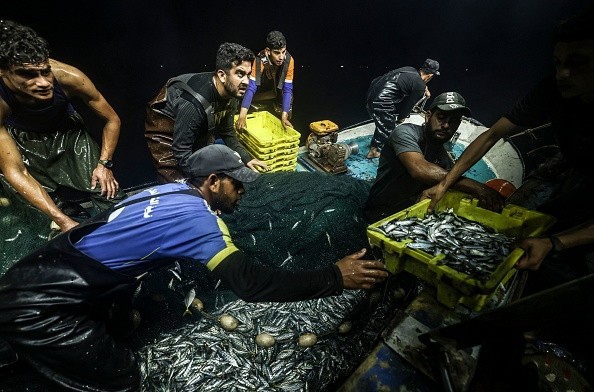In 2015, Phoenix Islands Protected Area was classified as a "no-take" zones, which stopped commercial fishing in an area of over 157,000 square miles.

No-take Zone Now Opened to Commercial Fishing
On Monday, the Kiribati government revealed that commercial fishing will once again be allowed in one of the world's biggest protected marine areas.
"Our decision as a sovereign country and Government is people-centric and commensurate with holistic options for marine protection and management, economic diversification, sustainable tourism and fisheries, to promote the growth of Kiribati's blue economy, and uplift the lives of all I-Kiribati," a government statement said.
However, despite assurances from the Pacific Island country, the government has not been able to make up for lost income as a result of PIPA creation.
According to The Guardian, Phoenix Islands Protected Area (PIPA) was classified as a "no-take" zone, which covers an area of more than 157,000 square miles in the south Pacific.
"Similar to any Government, our decisions, as we make them, put the livelihoods of our people at the fore and have been carefully considered and agreed to as a Government," a government press statement read, speaking about the economic advantages the nation may get if the commercial fishing ban is lifted, as per The Guardian.
A sovereign nation and government's choice is people-centric and consistent with comprehensive solutions for marine preservation, management, economic diversification and sustainable tourism and fisheries to develop Kiribati's blue economy and improve the lives of its people.
Lost Revenue Brought About by the Creation of PIPA
As a result of the introduction of PIPA, the government has apparently been unable to make up for lost income, despite assurances from the Pacific Island country that it would be able to recover any losses.
There are over 800 identified species of wildlife in the region, including 200 coral species, 500 fish species, 18 marine animals, and 44 bird species, according to the United Nations Educational Scientific and Cultural Organization.
Anote Tong, the former president credited with establishing the protected region, expressed his disappointment at the news.
He remarked that he didn't think it would happen like this. Tong said, "And this was precisely the reason that we put it into legislation. Because it had to be something that would remain regardless of any political changes."
Future of PIPA
But senior vice president Richard Jeo, Conservation International's Asia-Pacific field division revealed to the outlet the act would need to be officially authorized by parliament before it begins. The proposal hasn't been introduced.
According to the statement, as a sovereign country in the Pacific, Kiribati has the ability to decide on the future of PIPA.
At the time, Kiribati was a worldwide conservation leader, dedicated to saving 30% of its land and sea by 2030, and Jeo told the publication the organization was confident that Kiribati will remain as a conservation leader.
Related Article : Protected Areas All Over the World Vulnerable to Invasive Alien Species
For more news, updates about protected areas and similar topics don't forget to follow Nature World News!
© 2025 NatureWorldNews.com All rights reserved. Do not reproduce without permission.





